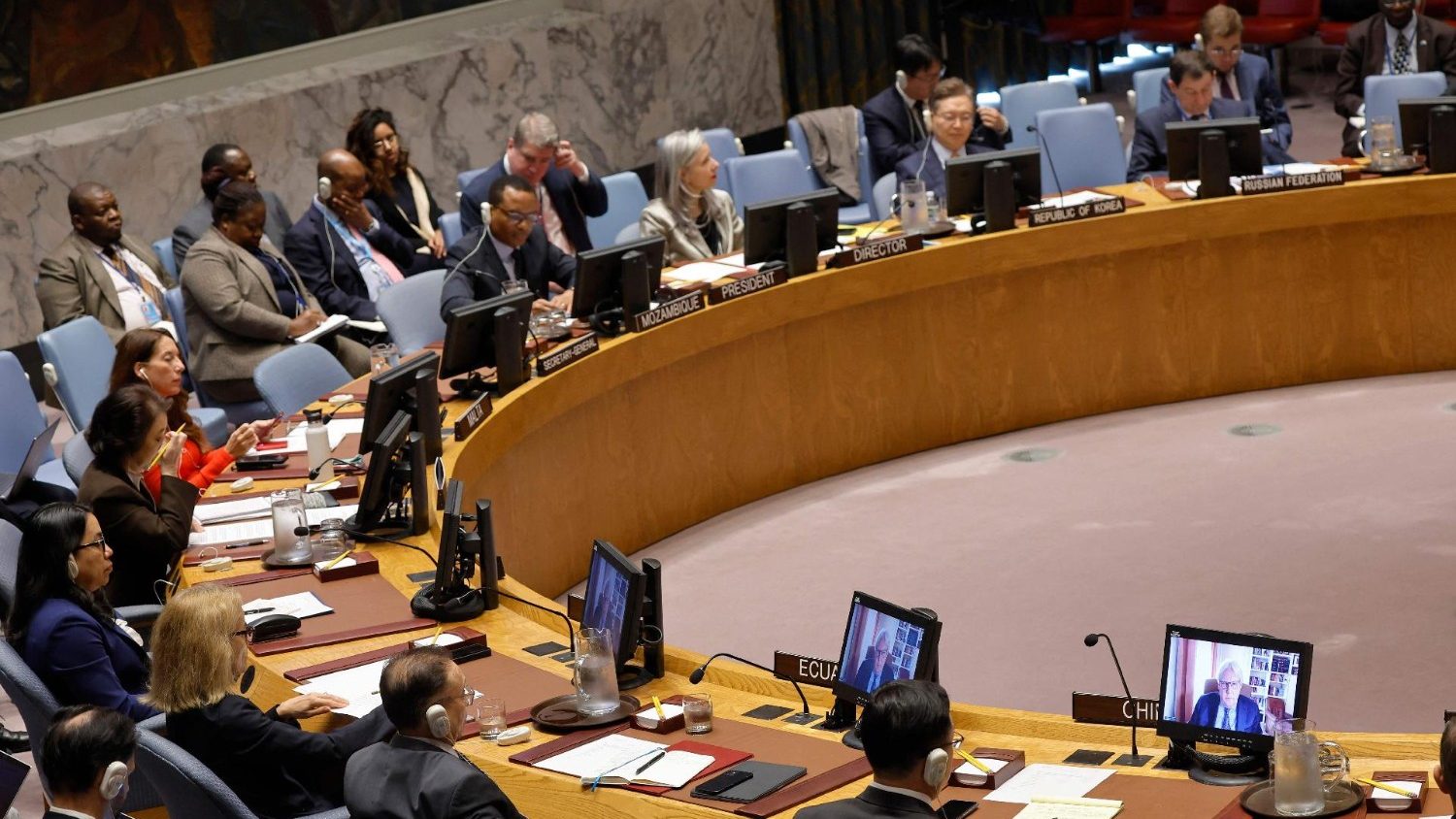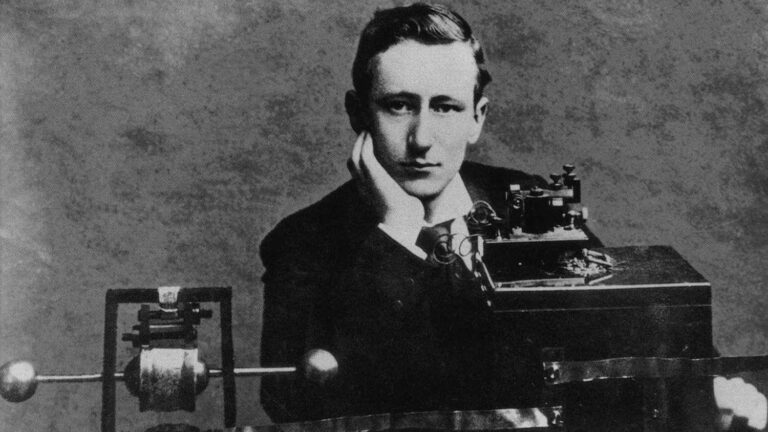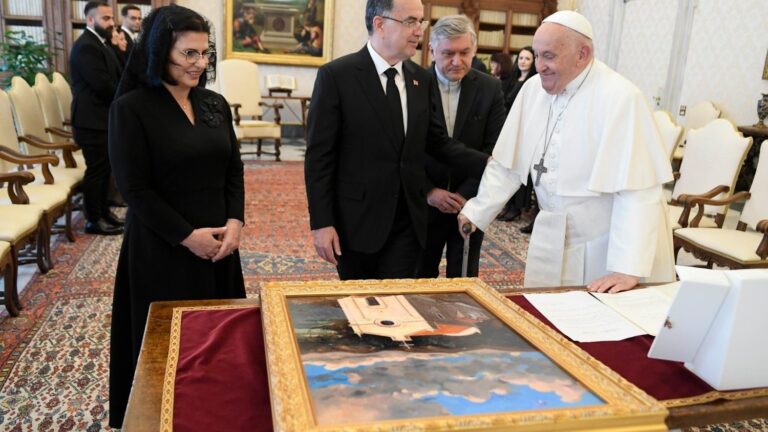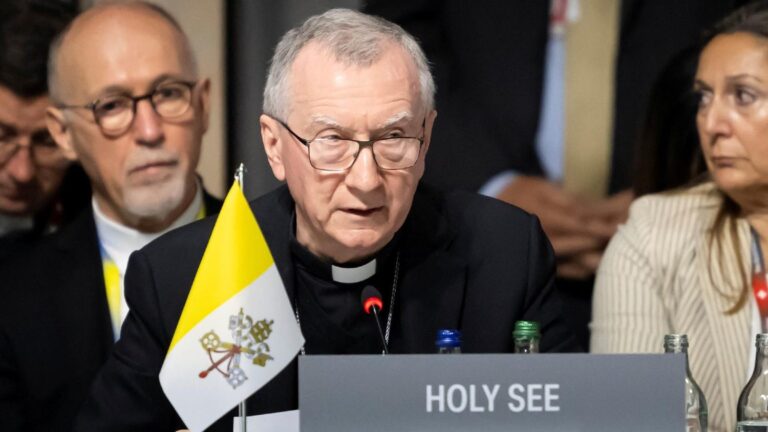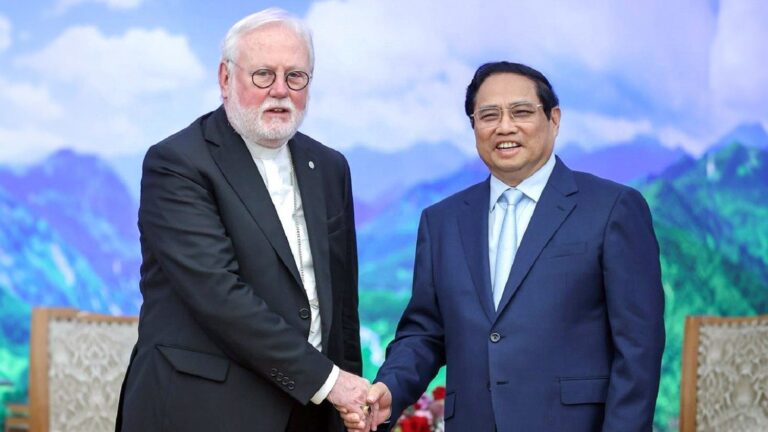Holy See decries sharp increase of children killed in conflict
The Vatican's representative to the UN, Archbishop Robert Murphy, addresses an open debate at the Security Council in New York on children and armed conflict and calls for concrete action to protect them from increasing atrocities.
By Lisa Zengarini
The Deputy Permanent Observer of the Holy See to the United Nations has denounced the alarming increase in the number of children killed in armed conflicts around the world and the inability of the international community to protect them.
His remarks came as he spoke Thursday during an open debate at the Security Council on the issue, marking the 25th anniversary of Resolution 1261 and the 75th anniversary of the Geneva Conventions.
The number of children killed in armed conflict has tripled since 2022
In his statement, Bishop Murphy highlighted the worrying trend of increasing numbers of children killed in armed conflict, particularly those living in populated areas where the use of explosive weapons has a devastating impact.
The latest report from the UN Secretary-General reveals that the percentage of children killed in armed conflict has tripled since 2022, in line with the number and intensity of conflicts around the world.
Thousands of children deprived of their childhood
Archbishop Murphy expressed the Holy See's particular concern that deadly weapons are increasingly being used against schools, hospitals and places of worship which he believes should be safe havens, especially for children. He also highlighted the influence of illicit trafficking in small arms and light weapons on children, including their recruitment as child soldiers.
“It is imperative not to underestimate the impact of these atrocities on children,” the Vatican diplomat said. “We witness every year the deprivation of thousands of children of that childhood that we have a fundamental duty to preserve and guarantee.”
There is an urgent need to implement a program on children and armed conflict
The Vatican Delegation therefore submitted three points for the Council's consideration. The first was that access to humanitarian aid is crucial to protect children.
The second was that stopping the production, stockpiling and use of indiscriminate weapons is an essential element in limiting the impact of armed conflict on children.
Finally, Archbishop Murphy urged the Security Council working group to ensure the optimal use of all available means to facilitate the implementation of the program on children and armed conflict, which it did not do so far. “This failure – he noted – has concrete consequences for children in some of the most vulnerable situations. »
